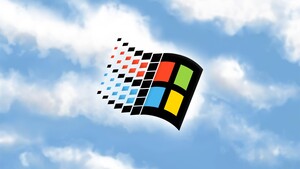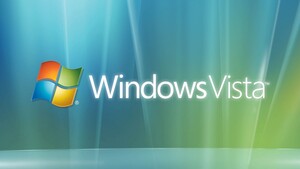Tarrega8472
Newbie
- Registriert
- Juni 2007
- Beiträge
- 4
Hallo zusammen! 
Ich habe folgendes Problem bei dem ich mit meinem Latein am Ende bin:
Unter Windows Vista Home Premium 32bit erhalte ich mit ziemlicher Regelmäßigkeit
einige Minuten nach dem Hochfahren einen Blue-Screen mit einer Stop Anweisung und
dem Fehler-Code 7F, {8, 824990c0, 0, 0}. 7F und 8 bedeuten Hardwarefehler und Doppelfehler. Also irgendwas mit meiner Hardware nicht in Ordnung.
Die Hardware (siehe sysProfil) ist neu im Zusammenhang mit Vista. Auf XP MCE läuft sie
dagegen seit Monaten ohne Fehler. Daher bezweifle ich, dass Hardware defekt ist.
Memtest86 hat keine Ram-Fehler angezeigt.
Kennt sich hier jemand gut mit diesen Fehler-Codes aus? Können die auch durch fehlerhafte Treiber verursacht werden?
Ich wäre dankbar für jede Hilfe.
MfG Tarrega
P.S. ich hab das Minidump-File ausgelesen das erbrachte folgendes:
*******************************************************************************
* *
* Bugcheck Analysis *
* *
*******************************************************************************
UNEXPECTED_KERNEL_MODE_TRAP (7f)
This means a trap occurred in kernel mode, and it's a trap of a kind
that the kernel isn't allowed to have/catch (bound trap) or that
is always instant death (double fault). The first number in the
bugcheck params is the number of the trap (8 = double fault, etc)
Consult an Intel x86 family manual to learn more about what these
traps are. Here is a *portion* of those codes:
If kv shows a taskGate
use .tss on the part before the colon, then kv.
Else if kv shows a trapframe
use .trap on that value
Else
.trap on the appropriate frame will show where the trap was taken
(on x86, this will be the ebp that goes with the procedure KiTrap)
Endif
kb will then show the corrected stack.
Arguments:
Arg1: 00000008, EXCEPTION_DOUBLE_FAULT
Arg2: 824990c0
Arg3: 00000000
Arg4: 00000000
Debugging Details:
------------------
***** Kernel symbols are WRONG. Please fix symbols to do analysis.
*************************************************************************
*** ***
*** ***
*** Your debugger is not using the correct symbols ***
*** ***
*** In order for this command to work properly, your symbol path ***
*** must point to .pdb files that have full type information. ***
*** ***
*** Certain .pdb files (such as the public OS symbols) do not ***
*** contain the required information. Contact the group that ***
*** provided you with these symbols if you need this command to ***
*** work. ***
*** ***
*** Type referenced: nt!_KPRCB ***
*** ***
*************************************************************************
MODULE_NAME: nt
FAULTING_MODULE: 81c00000 nt
DEBUG_FLR_IMAGE_TIMESTAMP: 4549ae00
BUGCHECK_STR: 0x7f_8
DEFAULT_BUCKET_ID: DRIVER_FAULT
LAST_CONTROL_TRANSFER: from 00000000 to 81c8ea5e
STACK_TEXT:
00000000 00000000 00000000 00000000 00000000 nt!Kei386EoiHelper+0x1706
STACK_COMMAND: .bugcheck ; kb
FOLLOWUP_NAME: MachineOwner
BUCKET_ID: WRONG_SYMBOLS
Followup: MachineOwner
---------
Ich habe folgendes Problem bei dem ich mit meinem Latein am Ende bin:
Unter Windows Vista Home Premium 32bit erhalte ich mit ziemlicher Regelmäßigkeit
einige Minuten nach dem Hochfahren einen Blue-Screen mit einer Stop Anweisung und
dem Fehler-Code 7F, {8, 824990c0, 0, 0}. 7F und 8 bedeuten Hardwarefehler und Doppelfehler. Also irgendwas mit meiner Hardware nicht in Ordnung.
Die Hardware (siehe sysProfil) ist neu im Zusammenhang mit Vista. Auf XP MCE läuft sie
dagegen seit Monaten ohne Fehler. Daher bezweifle ich, dass Hardware defekt ist.
Memtest86 hat keine Ram-Fehler angezeigt.
Kennt sich hier jemand gut mit diesen Fehler-Codes aus? Können die auch durch fehlerhafte Treiber verursacht werden?
Ich wäre dankbar für jede Hilfe.
MfG Tarrega
P.S. ich hab das Minidump-File ausgelesen das erbrachte folgendes:
*******************************************************************************
* *
* Bugcheck Analysis *
* *
*******************************************************************************
UNEXPECTED_KERNEL_MODE_TRAP (7f)
This means a trap occurred in kernel mode, and it's a trap of a kind
that the kernel isn't allowed to have/catch (bound trap) or that
is always instant death (double fault). The first number in the
bugcheck params is the number of the trap (8 = double fault, etc)
Consult an Intel x86 family manual to learn more about what these
traps are. Here is a *portion* of those codes:
If kv shows a taskGate
use .tss on the part before the colon, then kv.
Else if kv shows a trapframe
use .trap on that value
Else
.trap on the appropriate frame will show where the trap was taken
(on x86, this will be the ebp that goes with the procedure KiTrap)
Endif
kb will then show the corrected stack.
Arguments:
Arg1: 00000008, EXCEPTION_DOUBLE_FAULT
Arg2: 824990c0
Arg3: 00000000
Arg4: 00000000
Debugging Details:
------------------
***** Kernel symbols are WRONG. Please fix symbols to do analysis.
*************************************************************************
*** ***
*** ***
*** Your debugger is not using the correct symbols ***
*** ***
*** In order for this command to work properly, your symbol path ***
*** must point to .pdb files that have full type information. ***
*** ***
*** Certain .pdb files (such as the public OS symbols) do not ***
*** contain the required information. Contact the group that ***
*** provided you with these symbols if you need this command to ***
*** work. ***
*** ***
*** Type referenced: nt!_KPRCB ***
*** ***
*************************************************************************
MODULE_NAME: nt
FAULTING_MODULE: 81c00000 nt
DEBUG_FLR_IMAGE_TIMESTAMP: 4549ae00
BUGCHECK_STR: 0x7f_8
DEFAULT_BUCKET_ID: DRIVER_FAULT
LAST_CONTROL_TRANSFER: from 00000000 to 81c8ea5e
STACK_TEXT:
00000000 00000000 00000000 00000000 00000000 nt!Kei386EoiHelper+0x1706
STACK_COMMAND: .bugcheck ; kb
FOLLOWUP_NAME: MachineOwner
BUCKET_ID: WRONG_SYMBOLS
Followup: MachineOwner
---------



